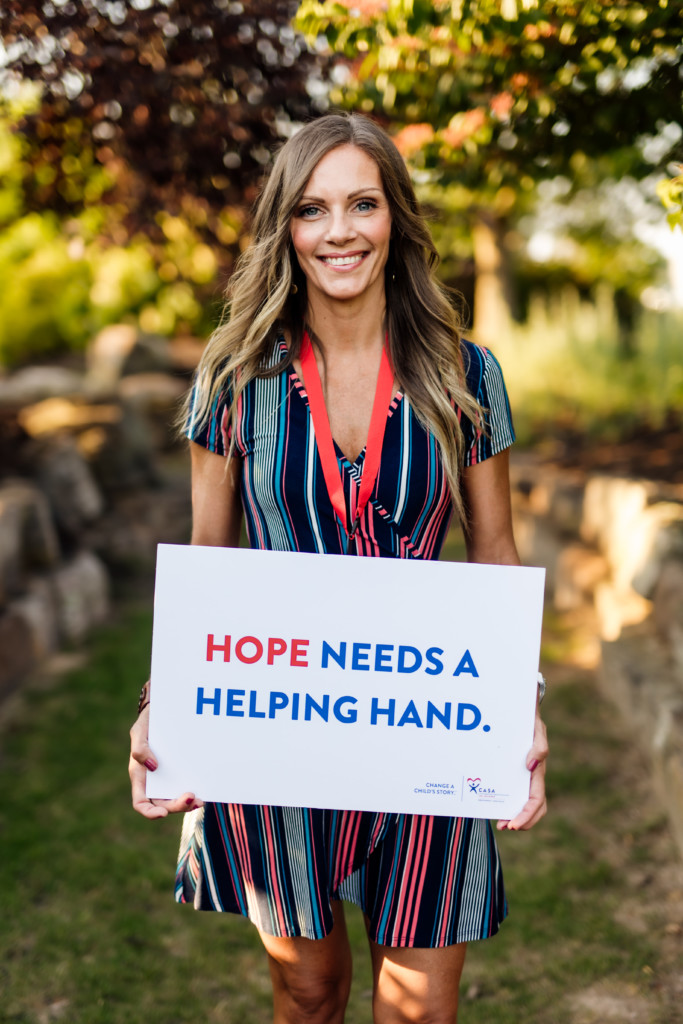Meet Rachel.
“Knowing that these kids are in pain, and there’s something I can do to help lessen that in some way that could make them feel loved. That for me was what made me feel like I wanted to do this.”
Originally from California, Rachel Jardot has called Northwest Arkansas her home since she was 11 years old. After completing her undergraduate degree from the University of Arkansas, she attended John Brown University for her master’s. Amazingly she was able to juggle full-time school, work, and having her first child. Rachel graduated in 2007 from JBU, and through her hard work, she built a successful career in corporate finance through various roles and companies.
In past experiences with children, she worked in a nursery for kids as well as a children’s ministry. “I love working with kids. I have a heart for them,” she said. In 2014, then with her third child, education finished and a well-developing career, she made the decision to become a CASA volunteer.
The beauty of how Rachel first learned about CASA is in its simplicity. Her mother shared a link about CASA with her one day, which led to her browsing our website. What she found was a fairly simple way to make a huge impact, and she immediately knew she wanted to do it— and that was it!
“My favorite thing about being a CASA is interacting with the kids… Seeing them get a comfort with your presence, that just warms your heart.”
As a seven-year CASA veteran, Rachel knows being a CASA can be a big responsibility. In the beginning, she and her mother were able to come into the program as a pair. While many CASAs operate as the sole volunteer on a given case, having someone there to do it with you not only splits up the work, but it also adds an extra layer of support for both yourself and for the children.
“Having a partner was really helpful, especially getting to bump ideas against someone else”, Rachel said. “We each covered any questions that needed to be asked that the other may not have thought about, makes you feel a little more comfortable in the process. We were able to dig in and fact find more than we would have been able to individually.”
While describing one of the cases she had that stuck with her, it became apparent just how much being a CASA means to Rachel. She spoke about a case where a little girl ended up in a shelter all by herself. When she visited her, the little girl had drawn a picture and she asked if Rachel could give it to her mom. “You could tell she missed her mom so much, and that’s all she could do,” said Rachel. “That was her way of communicating with her mom to tell her she loved her and missed her.”
“This is a pretty small way that you can make a huge impact on a child that’s hurting. Don’t be afraid of the time it’s going to take; it won’t take as much as you think and it’s worth the time that it does take.”
Rachel is like other advocates in what she describes receiving in her work as a volunteer. When a case closes—whether it be reunification, guardianship, or adoption— when a CASA sees their child warm up to them and shares their thoughts and feelings, or when they simply speak on the phone and a child says, “thank you,” it’s a good feeling, a warmth.
Knowing you made an impact and that you played a part in turning an otherwise terrible series of events into a second chance; A chance to change a child’s story for the better, it makes it all worthwhile.
